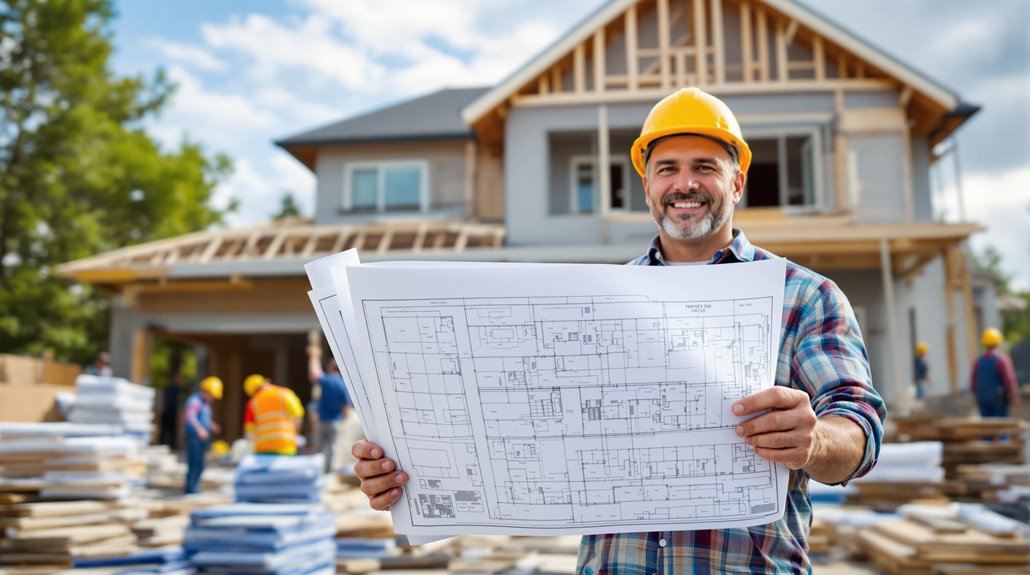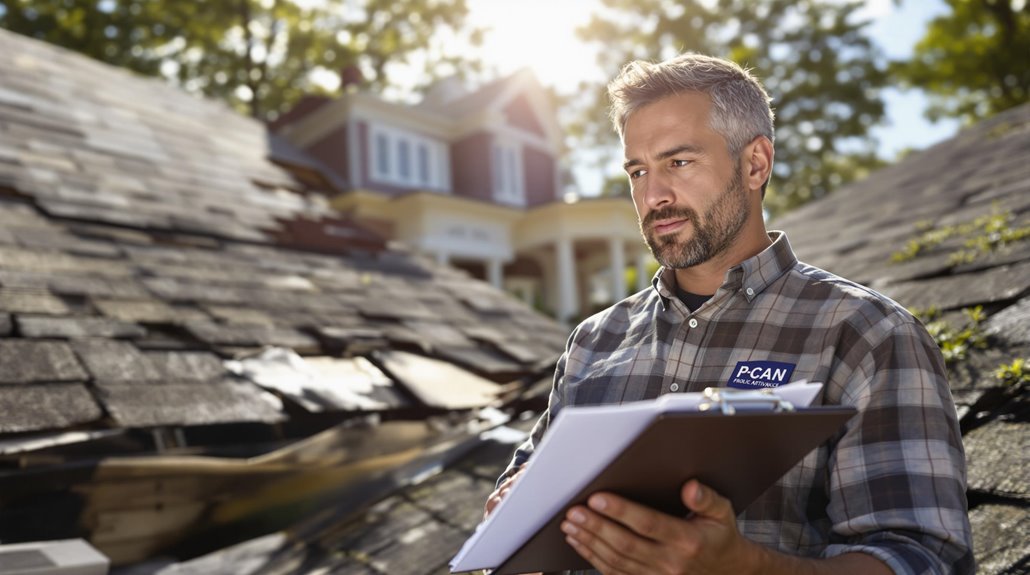Ever wondered what replacement value means when shopping for homeowners insurance? Think of it as your home's safety net – it's the coverage that ensures you can rebuild or repair your property as good as new, without those pesky depreciation deductions eating into your claim.
Picture this: Your beloved 10-year-old kitchen cabinets get damaged in a water leak. With replacement value coverage, you'll get the funds to install brand-new cabinets of similar quality – not just what your old ones were worth after a decade of use. Pretty sweet, right?
But here's the real game-changer: Getting your replacement value right is like having a crystal ball for your home's future. It factors in everything from local construction costs to those sky-high material prices we've been seeing lately. And don't forget about labor costs – they're part of the equation too!
Smart homeowners know that skimping on replacement value is like bringing a umbrella that's too small to a rainstorm – you'll end up getting wet where it counts. To truly protect your investment, you'll want to work with your insurance pro to nail down an accurate replacement value that reflects today's rebuilding costs in your area.
Remember, the goal isn't just to insure your house – it's to ensure you can rebuild your home exactly as it was, no matter what curve balls life throws your way. That's the true peace of mind replacement value coverage delivers.
Key Takeaways
- Replacement value coverage ensures homeowners can repair or replace damaged property without accounting for depreciation.
- Replacement cost value (RCV) policies typically result in higher premiums but provide full repair or replacement costs without deductions.
- RCV payouts are generally higher compared to Actual Cash Value (ACV) since they do not subtract depreciation from the replacement cost.
- Accurately assessing property replacement value is essential to guarantee adequate coverage and prevent underinsurance.
- Homeowners can opt for public adjusters to evaluate complex claims objectively and help them receive fair compensation for damages.
Understanding Replacement Value in Homeowners Insurance
Although homeowners insurance policies can provide financial protection against damage or loss, understanding the nuances of replacement value is vital to guaranteeing adequate coverage.
Replacement cost coverage, in the context of homeowners insurance, refers to the amount required to repair or replace damaged property without accounting for depreciation. This type of coverage allows homeowners to rebuild or restore their property to its original condition in the event of a loss, regardless of the actual cash value at the time of the loss.
To maintain adequate replacement cost coverage, homeowners should regularly assess their property's value to confirm their dwelling coverage amount reflects current rebuilding expenses. This prevents underinsurance and provides funds for rebuilding according to current market prices and building codes.
Since replacement cost coverage typically results in higher premiums compared to Actual Cash Value policies, it is essential for homeowners to carefully review their insurance policy terms to guarantee they have the necessary full cost to replace.
For additional protection against unexpected reconstruction costs, homeowners can opt for Extended Replacement Cost coverage, which provides up to 50% above the standard dwelling coverage limit.
Replacement Value Vs Actual Cash Value: What's the Difference?

How do Replacement Value and Actual Cash Value differ in the context of homeowners insurance policies? The primary distinction lies in the calculation of reimbursement amounts. Replacement Cost Value (RCV) coverage provides the full cost to repair or replace damaged property, without deductions for depreciation. In contrast, Actual Cash Value (ACV) coverage calculates reimbursement by subtracting depreciation from the replacement cost, reflecting the property's current worth. Professional claim adjusters can help maximize settlement amounts by up to 700% compared to standard claims processing.
| Insurance Coverage | Description | Claims Scenario |
|---|---|---|
| Replacement Cost Value (RCV) | Full replacement cost | Damaged item replaced with a new one ($2,000) |
| Actual Cash Value (ACV) | Subtract depreciation from replacement cost | Damaged item reimbursed at depreciated value ($1,500) |
| Premium Cost | Higher for RCV, lower for ACV | Impacts financial security in event of a loss |
| Reimbursement Amount | Extensive coverage for RCV, reduced for ACV | Significant difference in claim payouts |
| Homeowners Consideration | Understanding RCV and ACV essential for selecting insurance coverage | Vital for financial security and claim outcomes |
How Replacement Value Affects Homeowners Insurance Claims

Replacement Value in homeowners insurance plays a significant role in determining claim payouts, and its impact becomes evident when policyholders file claims for property damage. The replacement cost value (RCV) guarantees that policyholders receive the full cost to repair or replace damaged property without depreciation, resulting in higher payouts compared to actual cash value (ACV) claims.
Under RCV coverage, claims for property damage allow homeowners to rebuild or replace their property with new items at current market prices, providing greater financial security.
For instance, if a roof damaged in a storm costs $15,000 to replace, RCV coverage would reimburse the full amount minus any deductible. In contrast, ACV would only cover the depreciated value, resulting in a much lower payout.
Homeowners with RCV policies benefit from thorough restoration of their property, highlighting the importance of understanding the difference between RCV and ACV when filing claims for property damage under homeowners insurance.
Weather impact assessments by insurance adjusters can significantly affect how long it takes to process replacement value claims and determine final payouts.
Importance of Accurate Replacement Value Assessment

What is the true cost of rebuilding a home after a disaster strikes? Accurate assessment of replacement value is essential in homeowners insurance, guaranteeing sufficient coverage to rebuild a home to its original condition. Insurers evaluate replacement costs based on local construction prices, materials, labor rates, and compliance with current building codes, which can fluctuate over time.
| Factors Affecting Replacement Value | Impact on Rebuilding Costs | Importance of Accurate Assessment |
|---|---|---|
| Local construction prices | Increased costs due to market fluctuations | Avoids underinsurance and guarantees adequate coverage |
| Materials and labor rates | Higher costs due to changes in material prices or labor rates | Enables accurate calculation of rebuilding costs |
| Current building codes | Additional costs due to compliance requirements | Guarantees compliance with current regulations |
| Property values | Changes in property value affect replacement cost | Regular updates guarantee accurate coverage limits |
Regularly updating the replacement value of a property helps homeowners avoid underinsurance. Public adjusters can provide expert assistance in evaluating complex replacement value claims and ensuring fair compensation.
Choosing the Right Coverage: Replacement Value Vs Actual Cash Value

When it comes to selecting the right coverage for their property, homeowners must carefully consider the differences between Replacement Cost Value (RCV) and Actual Cash Value (ACV) policies. A key distinction lies in how each policy type handles depreciation.
RCV coverage, typically associated with higher premiums, pays for the full cost of replacing damaged property without depreciation, providing thorough protection against total losses. Conversely, ACV coverage deducts depreciation, potentially resulting in lower payouts for claims.
This disparity can have significant implications for personal property coverage. For instance, a damaged appliance valued at $1,500 would be reimbursed at full replacement cost under RCV, while an ACV policy might only pay a fraction of this amount based on its depreciated value.
Therefore, homeowners must carefully evaluate their insurance needs and choose between RCV and ACV to guarantee adequate coverage for their property within a homeowners insurance policy. While public adjusters can assist with complex claims to ensure fair settlements, understanding your policy type is crucial for maximizing potential reimbursements.
The Benefits Of Consulting A Public Adjuster

Consulting a public adjuster can provide homeowners with expertise in insurance claims, ensuring that their replacement value coverage is maximized.
A public adjuster's objective damage assessment and knowledge of the claims process can streamline the experience, reducing the likelihood of disputes and underpayments.
Expertise In Insurance Claims
While maneuvering through the complexities of homeowners insurance claims can be a formidable task, policyholders who enlist the services of a public adjuster are often better positioned to secure fair compensation for their losses. Public adjusters bring expertise in accurately evaluating damages and determining the appropriate replacement cost value (RCV) for property. They navigate complex insurance policies and claims procedures on behalf of homeowners, alleviating stress and paperwork burdens.
| Benefits of Public Adjuster | Insurance Company Offer | Public Adjuster Impact |
|---|---|---|
| Accurate Damage Evaluation | Lower claim payouts based on actual cash value | Higher claim payouts with RCV |
| Claims Process Expertise | Lengthy claims process | Expedited claims resolution |
| Negotiation Skills | Lower settlement offers | Maximized settlement amounts |
| Contingency Fee Basis | No financial incentive | Financial incentive to maximize claim value |
Objective Damage Assessment
The expertise of a public adjuster is instrumental in providing an objective damage assessment, an essential component in determining the true value of a homeowner's claim.
Unlike the insurance company's focus on actual cash value (ACV), which factors in depreciation, public adjusters assess property damage claims based on the actual replacement cost value (RCV) of the property.
This distinction is vital in ensuring homeowners receive fair compensation for their covered loss. Public adjusters provide detailed documentation and estimates, greatly increasing the likelihood of a favorable settlement.
Their involvement often results in higher claim payouts, with policyholders typically receiving settlements that are 20-50% higher than those who handle claims independently.
This underscores the value of consulting a public adjuster in property damage claims.
Streamlined Claim Process
Homeowners guiding through the often-complex process of filing an insurance claim can greatly benefit from the expertise of a public adjuster.
A public adjuster's primary role is to provide guidance in accurately evaluating property damage, determining replacement cost value (RCV) and actual cash value (ACV), and streamlining the claims process.
By maneuvering through complex insurance policies, public adjusters guarantee all eligible damages are accounted for, maximizing the homeowner's potential payout.
They handle communication with the insurance company, expediting the process and allowing the homeowner to focus on recovery.
Working on a contingency fee basis, public adjusters' interests align with those of the homeowner.
This results in a more efficient and effective claims process, alleviating the burden on the homeowner.
Higher Claim Payouts & Settlements
Numerous studies demonstrate that consulting a public adjuster can greatly impact the outcome of an insurance claim, with policyholders often receiving substantially higher payouts than those who navigate the process independently.
This is particularly evident when considering the nuances of replacement cost versus actual cash value. Public adjusters have a deep understanding of these concepts, ensuring that homeowners receive the full compensation they are entitled to under their policy.
Statistically, policyholders who hire public adjusters often secure insurance settlements that are 20% to 50% higher than those who handle claims independently.
About The Public Claims Adjusters Network (PCAN)

Expert guidance is essential for policyholders traversing the complexities of residential and commercial property damage insurance claims.
The Public Claims Adjusters Network (PCAN) serves as a resource for policyholders to connect with expert public adjusters who are pre-vetted, licensed, and experts in their field.
PCAN member adjusters specialize in various claim types, including homeowners insurance claims involving actual cash value and replacement cost value assessments.
With a presence in over 40 states, PCAN provides access to a national network of top public adjusters who have undergone an intensive application and interview process to guarantee their expertise and professionalism.
All member adjusters are held to the highest standards of ethics, morals, and professionalism, with mandatory yearly audits of their licenses and any complaints.
Frequently Asked Questions
What Does Replacement Value Mean on Homeowners Insurance?
Replacement value in homeowners insurance refers to the cost of replacing damaged property without factoring in depreciation, providing thorough insurance coverage based on a home appraisal, within policy limits, facilitating the claims process and offering ideal financial protection.
What Is an Example of a Replacement Value?
Like finding a matching puzzle piece, identifying an example of replacement value is straightforward: when a homeowner's $1,200 TV is stolen, their insurance policy covers the full replacement cost of a brand new model, offering extensive financial protection.
What Is Better, Actual Cash Value or Replacement Cost Value?
Replacement Cost Value is often considered better than Actual Cash Value due to its more thorough coverage, despite higher insurance premiums, as it guarantees policyholders receive full replacement costs without depreciation during the claim process.
How Is the Replacement Value of a Home Determined?
A master builder's puzzle, determining replacement value begins with home appraisal methods, considering factors like materials and labor costs, then weighs against market value, accounts for depreciation, and finally sets insurance policy options to cover home reconstruction costs.








